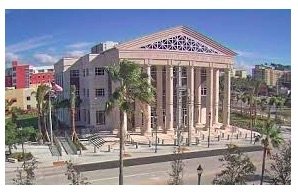Law & Crime reports
A Florida appeals court judge disagreed with her colleagues this week who refused to grant relief to a mother arrested, in part, for recording the police officers who were arresting her son. The dissenting judge warned that the ruling could criminalize incidents like the bystander video which showed Derek Chauvin‘s restraint of George Floyd. That video precipitated a global conversation on police reform. Chauvin was convicted of murder in part because of the video.
Florida’s Fourth District Court of Appeal ruled 2-1 that officers had probable cause to arrest plaintiff Tasha Ford, though prosecutors never ended up filing charges against her. The proffered reason for Ford’s 2009 arrest was two-fold: officers accused the mother of (1) intercepting oral communications (wiretapping) and (2) of obstructing justice without violence. Ford sued the city in civil court on the grounds that her arrest violated her civil rights.
As described in the opinion, cops were attempting to arrest Ford’s son for trespassing in a theater after the son allegedly snuck in without paying. One of the officers allegedly slammed the son against the hood of a car after the son mistook the officer for a security guard. Ford arrived and spoke to officers on the sidewalk. She approached them with her cell phone recording.
What followed was a back-and-forth dispute.
From the majority opinion by Judges Melanie G. May and Edward L. Artau:
Read more at




